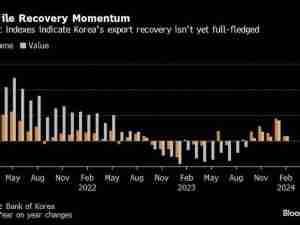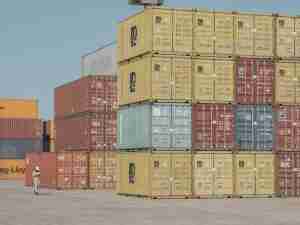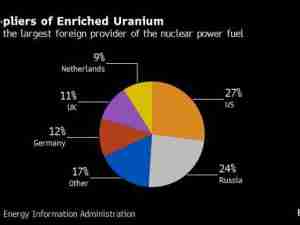U.S. Unlikely to Tag China Currency Manipulator, Schwarzman Says
By: Andrew Mayeda and Jennifer Jacobs | Apr 11 2017 at 02:45 PM | International Trade
A top outside adviser to President Donald Trump said the U.S. probably won’t name China a currency manipulator in a report due this month, a move that would break a key campaign promise and another sign of capitulation on the administration’s tough trade talk.
“I would doubt that would happen,” Stephen Schwarzman, chairman of Blackstone Group, told Bloomberg Television in an interview, when asked about China being designated in the Treasury Department’s next foreign-exchange report. Schwarzman chairs the president’s strategy and policy forum, a panel of business leaders that includes JPMorgan Chase CEO Jamie Dimon and BlackRock CEO Laurence Fink.
The Treasury is expected to release its first currency report under Trump this month. The department is required by law to report to Congress twice a year on whether America’s major trading partners are gaming their currencies.
The last report, in October, included China and five other nations on a watch list of countries at risk of engaging in unfair foreign-exchange practices, but it didn’t name any country a manipulator—a step the U.S. hasn’t taken since 1994.
Campaign Promises
Sparing China from being labeled a currency manipulator would be the latest indication that Trump’s rhetoric on trade as the Republican candidate last year was harsher than the policies he’s establishing as president. The administration has yet to launch renegotiation of the North American Free Trade Agreement, another step Trump promised during the campaign. Nor has the U.S. imposed punitive tariffs on foreign countries or U.S. companies that move jobs offshore, as Trump has threatened.
Trump accused China during the election campaign of manipulating its currency to gain the upper hand in trade. But he didn’t follow through on his promise to label the country a manipulator on his first day in office, and Trump didn’t mention the issue publicly during Chinese President Xi Jinping’s visit to the U.S. this month.
After the meeting, the White House announced a 100-day plan to discuss re-balancing the bilateral trade relationship.
Schwarzman chaired the second meeting of Trump’s advisory panel on Tuesday at the White House. Schwarzman said China didn’t come up Tuesday in a meeting with the president and five cabinet secretaries.
Three Categories
The Treasury created a new monitoring list in April after Congress passed a law requiring closer scrutiny of foreign-exchange regimes. Treasury officials developed three criteria to decide if countries are being unfair: an economy having a trade surplus with the U.S. above $20 billion; having a current-account surplus amounting to more than 3 percent of its gross domestic product; repeatedly depreciating its currency by buying foreign assets equivalent to 2 percent of output over the year.
Meeting all three would trigger action by the president to enter discussions with the country and seek potential penalties.
In the October report, the Treasury noted that China has actually been intervening in exchange markets to prop up the yuan. While the currency has dropped 6.5 percent against the dollar this year, it has appreciated nearly 17 percent since 2005, when China loosened its peg against the greenback.
“If you just let the Treasury guys do their jobs, it’s unlikely” the U.S. will name China a manipulator, said Douglas Holtz-Eakin, the president of the American Action Forum and former chief economist to George W. Bush’s Council of Economic Advisers. “If you look at the recent data, it’s inconsistent with currency manipulation.”
Democrats’ Criticism
The Senate Democratic leader, Chuck Schumer, told reporters in a conference call on Tuesday that Trump should designate China a currency manipulator and pressure Chinese leaders to end subsidies for aluminum and other commodities. Trump hasn’t done enough to crack down on China’s theft of intellectual property from U.S. businesses or force the country to more fully open its markets to foreign competition.
“For far too long, China taken us to the cleaners as far as the economy,” Schumer, of New York, said. “I can’t think of a single job they have saved by a single action against China.”
The Treasury may toughen its currency criteria so the yuan is found to be out of step with economic fundamentals, said David Dollar, a former Treasury official and China expert at the Brookings Institution in Washington. Such a finding might put pressure on China to avoid letting the yuan fall too far, without accusing the government of manipulation.
“The manipulator language suggests you’re directly intervening,” he said. “The language of misalignment is that you’re far away from some kind of long-run equilibrium.”







